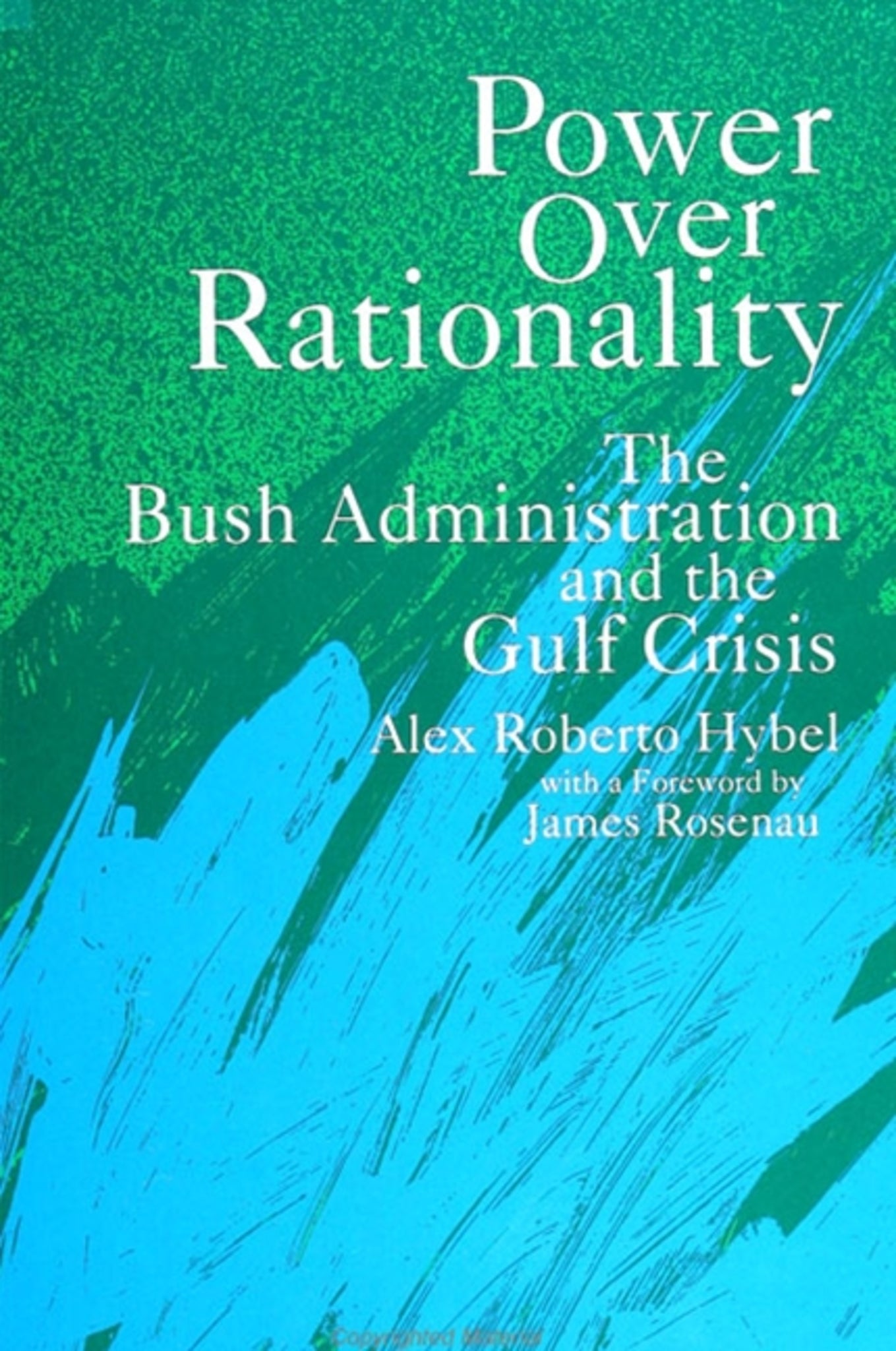We're sorry. An error has occurred
Please cancel or retry.
Power Over Rationality

Some error occured while loading the Quick View. Please close the Quick View and try reloading the page.
Couldn't load pickup availability
- Format:
-
11 February 1993

To most Americans, the Gulf War symbolizes the culmination of a highly sophisticated decision-making process within the Bush administration. In this highly readable and challenging book, Hybel demonstrates the shortcomings of such a view by using cognitive models to examine how the administration defined problems, identified goals, assessed alternatives, and selected options during the seven months preceding the start of the war.
This book will prove to be a critical contribution to the understanding of the Bush administration's thinking process during the Gulf crisis and of the value of cognitive models in explaining foreign policy making.


"This is a provocative book, not just because it advances a critical theory or a counter-intuitive interpretation but also because it poses important and tough questions about some crucial issues of both social science inquiry and contemporary U.S. foreign policy. Its enduring contribution is that it provides the context within which any case materials relevant to the conduct of foreign policy can be evaluated." — from the Foreword by James Rosenau
"What appeals to me most is the fit and balance the author achieves between the theoretical argument and the case study. Hybel makes genuine use of the history as he develops his argument, and as a result, he does more than illustrate cognitive principles. He provides a genuine explanation of why Bush rushed into the war in the Gulf." — Dwain Mefford, Ohio State University
Foreword
Preface
1. Power, War, and Decision-Making Aptitudes
2. A Typology of Decision-Making Aptitudes
3. A Preventable Surprise
4. Power Over Rationality
5. Rationality and Power
Notes
Bibliography
Index



